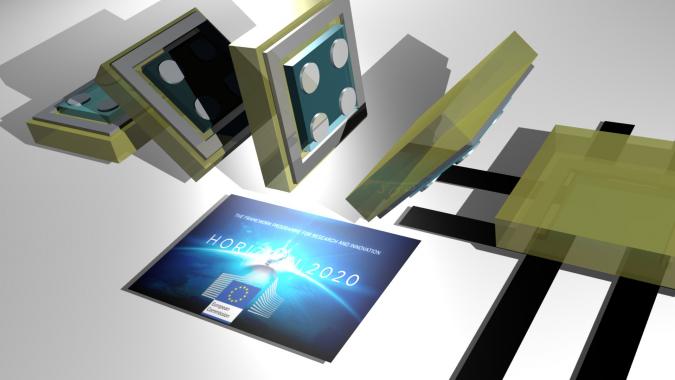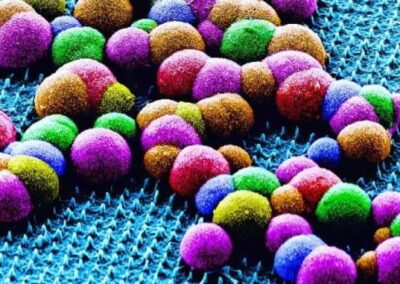GreenDiamond, with its 14 partners, is a €4 million European Horizon 2020 project launched in June 2015 to develop breakthrough diamond transistor technology for sustainable high power electronics. Diamond’s exceptional electronic and thermal properties make it the ultimate semiconductor for efficient transmission and conversion of electrical energy and could play a vital role in our future low-carbon society. Over the next four years the consortium of academic, research and industrial partners from 6 different countries aims to advance the technology readiness from concept to a 10kV transistor laboratory prototype.
Green electronics – highly efficient electronic devices – are crucially important for our future energy system as they will increase the efficiency of electricity production and distribution. According to the International Energy Association, 9% of electrical energy in Spain is lost through transformation and conversion power electronic processes. This number will only increase with time as available semiconductors, like silicon, are not ideal for high power applications and hence result in losses and inefficient energy transfer. In future smart grids involving delocalized renewable energy sources, these energy losses become even more important, as power electronics are needed throughout the grid to monitor and control the ever-changing supply and demand of low-carbon electricity transiting through the grid. Diamond however has a dielectric breakdown strength 3 times higher than that of silicon carbide and more than 30 times better than that of silicon, the carrier mobility is very high for both carrier types and the thermal conductivity is unsurpassed, making it the ideal candidate for such applications.
Two recent developments – the emergence of commercially available large area electronic grade single crystals and a scientific breakthrough in creating a MOS channel in diamond technology, have now opened new opportunities for the fabrication and commercialisation of diamond power transistors. These will result in substantial improvements in the performance of power electronic systems by offering higher blocking voltages, improved efficiency and reliability, as well as reduced thermal requirements thus opening the door to more efficient green electronic systems. In the future, all high voltage applications should benefit from the higher efficiency, durability and reliability of diamond devices, reducing significantly electrical losses, overall system complexity and improving reliability. GreenDiamond technology is inherently safe, non-toxic and affordable as its precursor, carbon, is abundant and can be made from renewable sources.
The GreenDiamond project will make new contributions to the energy challenge faced by Europe and the world and contribute to the foundations of our future low-carbon society. “GreenDiamond brings together the best labs in Europe and industry to make this step change in technology happen and enhance European leadership in the field. It is an exciting time for diamond and power electronics” says Etienne Gheeraert from Institut Néel.
Gheeraert is leading the consortium composed of groups from the CNRS Institut Néel and G2ELab, CEA and ESRF (France), UCL and University of Cambridge (UK), IMEC (Belgium), Fraunhofer IAF (Germany), University of Cadiz, Tecnalia and CSIC-CNM (Spain). Industrial partners include Camutronics (UK), Ion Beam Services (France) and Win Inertia (Spain) as a potential end user. Kurt Salmon (Luxembourg), in collaboration with Institut Néel, are responsible for the management of the project.
For more information, contact:
Marie-Laure Hicks
University College London – London Centre for Nanotechnology
17-19 Gordon Street, London WC1H 0AH, UK
Phone: +44(0)2076799934
Email: [email protected]




